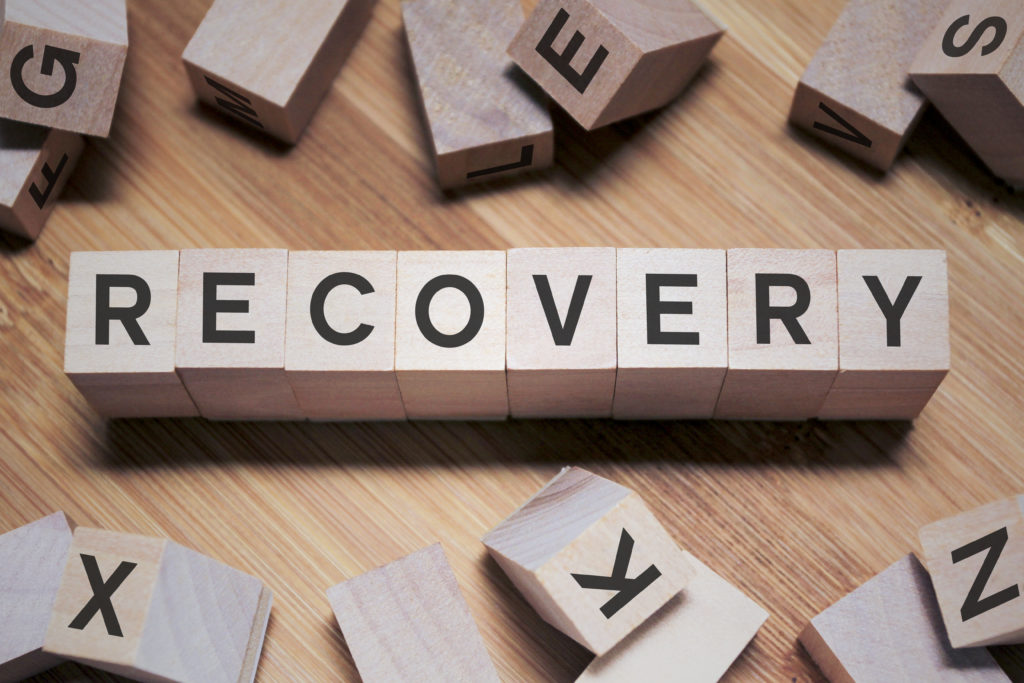Mistakes in Early Recovery
The reason we refer to recovery as recovery is that it is a lifelong process. No one is just cured of their alcoholism or addiction, it requires daily spiritual reprieve contingent on the maintenance of our spiritual condition. In a perfect world, once someone puts down their substance of choice, they would simply be “recovered.” While I wish this was the case, the real and bitter reality we live in has not developed a magical one-hit wonder of a pill that just makes addicts and alcoholics suddenly lifted of their illness. The problems we face in early sobriety on a daily basis could very well trigger one of us to consider or even act on feelings to relapse. There are so many common behaviors the fresh faces of people in early recovery will do wrong after leaving a treatment program.
What Happens After Addiction Treatment?
Accumulating even 30 days of continuous sobriety is an accomplishment for alcoholics and addicts alike. It’s not something that can be done alone and it’s certainly not the easiest feat. In the beginning even getting a few days free from the bonds of our addictions is something to be admired. As I said, recovery is work. It is challenging, and it is best done with a group of supportive friends who are also in treatment themselves. Treatment is meant as a stepping stone, giving you an opportunity to join the new and joyful group of early recovery. It’s a great concept.
Developing coping mechanisms, working through past trauma, and having the opportunity to see how great life could be when you’re drug-free. Addicts and alcoholics alike could always benefit from an inpatient program. Once they leave this controlled environment, that’s when real life slaps them in the face and they have to wake up from the rehab dream. Having a limited amount of time to establish a solid foundation, the stats are about to be tested. Here are the suggestions I took after leaving an inpatient and outpatient treatment center in early recovery.

5 Commonly Made Mistakes in Early Recovery
1). Returning Home
A common mistake made from someone fresh off the rehab train is returning to their previous and toxic residence. It can endanger their sobriety in a dangerous environment. The urges and temptations surrounding you outweigh any benefit of pursuing a move back home. I would not recommend returning to live in the place you experienced addiction. In my personal experience, I returned home and I was quickly seduced by my old friends to take back up drinking time and time again. However, I can’t get well where I once got sick.
After my first round of rehabilitation, it occurred to me that I was on stable footing. I decided to take myself and all of my problems back home. It was at this moment that my treatment team advised not to return home and to consider going somewhere referred to as sober living. I, of course, wanted nothing to do with this and believed any more recovery was fruitless. I insanely believed I was cured of my alcoholism. Sadly, I had no idea what I was truly dealing with. Alcoholism is sincerely cunning, baffling, and powerful. Within one week I was back to my old ways and started drinking excessively. Foolishly I allowed my self-will to consume my being. I refused to follow the direction expressed by experts working with me closely. It is really no surprise what happened next. I started spiraling out of control and reignited new wreckage in my life.
I was extremely against taking any suggestions my first time around. After a few times in treatment fully surrendering to the program and taking my early recovery extremely seriously, I made a decision to enter a sober living environment. Sharing a living space with multiple men who have different personalities and different ways of doing things sounded unfavorable to me. Although, the support and community you get in such a setting are unmatchable. I don’t believe a voyage back home would equal the same amount of support received in my new encompassment.
2). Keeping Old Friends
Peer pressure can be very dangerous. Although your old friends may say they’re going to support you in your early recovery, do what’s best for you. Yes, they may have been really good friends. But you should take some time to consider these questions:
- Are they still using?
- How would they influence me?
- Do they actually care about me now that I’m sober?
- What would the consequences be if relapse occurs?
A majority of my friends back home were not real friends and they didn’t honestly care about my wellbeing. They were mostly focused on what I had, and what we could get from each other. It was all surface level connection based on opportunistic principles. Sadly, that was all I knew for the longest time. I didn’t know there was such a thing as a true friend.
Staying in the local area of where you got sober would be highly favorable. Lots of others will stay local and you can hold on to friendships with the people you entered the program with. There are typically alumni meetings offered and you will still be able to maintain a relationship with those on your treatment team. I wouldn’t trade my sober living experience for anything. Even if it isn’t always ideal, I’m very grateful for those around me.

3). Not Maintaining a Support Program
After leaving treatment, the lack of a connection in the rooms of Alcoholics Anonymous could just be your downfall. You won’t have the same resources available to you as you do have in the inpatient setting. You must begin to rely on others in the program of Alcoholics Anonymous for support. In the sphere of rehab, where we were once surrounded by immense support, is suddenly gone. The sudden detachment from the support we once had can be traumatic. Most treatment centers practice and preach AA or NA into their curriculum granting an introduction for the clean and serene to learn what should be done post treatment. Re-establishing a support system with the support group I now have has helped me in ways I can’t even express. Being there for each other and maintaining true connections with other Alcoholics, that’s what’ll keep you sober.
Relapse
When you relapse, ruin follows. I was kicked out of my parents’ house. I had no interest in going to Alcoholics Anonymous. Due to this choice, I had no chance at maintaining sobriety. I embarked on a new journey believing I was so clever. I decided to crash on other people’s couches for as long as they would allow. This is a term commonly referred to as “couch surfing”. Inebriated as ever, I would continue crashing at my friends’ houses until I exhausted their patience. I was maintaining the mindset that I had hit nirvana. I could drink with impunity. Unfortunately, it didn’t take long for my friends to absorb how erratic and disturbing my behavior became. I really needed to take control of my life so it was time for the second round of treatment.
Again I thought I had a better way of doing this and I certainly was not ready to admit I was an alcoholic. There was nothing in my being or mindset that indicated I had a desire to stop drinking. So here I am again starting another 30-day program. In my mind, I figured I would be in and out. Inevitably returning to my parents’ home in no time. So now I exert my powerful skills of manipulation, it was my intention to get as much Xanax as humanly possible. I drastically began to fake panic attacks scheduled every few hours. The doctor was persuaded by my Broadway-worthy performance and indulged me. Now I was off and running again, with a new mind-altering substance in my pocket and not surprisingly back home to mom and dad.

Not taking early recovery seriously was a big problem for me. I thought I just needed to detox from the alcohol and drugs and then I would be fine. Even after multiple attempts, I just did not want to accept that I had to go to Alcoholics Anonymous for the rest of my life. This mindset took me out over and over again.
4). Rushing into a Relationship
Dating. Good idea? Bad idea? This is something you should personally ask your sponsor. Most will say wait one year before you should even consider getting into a relationship. Some even say you should wait a year before having sex. Another rumor out there is once you finish all of the 12 steps then you can start seeing someone.
I was previously given this advice. I heard it my last two times in treatment, but I always had to test everything out for myself. I wasn’t at all shocked about what happened when I decided to not follow suggestions yet again.
Round two of rehab was over. I was out in the real world again, back at my parents’ house. I maintained a flawless appearance. I behaved in a professional manner. In a proactive and desperate attempt, I begged my previous employer to give me back my old job. They reluctantly accepted my request on strict terms attached to their offer of employment. I was able to remain a functional alcoholic for almost a year. My Xanax problem quickly demonstrated a hold on me. My doctor began to realize I was abusing my prescription. I went through a ninety-day prescription in a matter of five days. She swiftly discontinued the medication and dropped me as a patient.
In an attempt to reassert my mastery of deception and manipulation, I started dating someone. I knew they were dealing drugs. That’s what attracted me, I didn’t care at all about the person. All I wanted was Xanax. But that’s not the only thing my new project was selling. I had an array of drugs to choose from and I never said no to any of them. My addiction brought me to an entirely different kind of destruction. I wasn’t using to get high anymore, I was using because I needed to.
Put Your Sober Self First
Compounding the drugs in addition to my daily drinking was tantamount to terminal cancer. It metastasized minute by minute, spreading and destroying my life. I was in my office instructing a class. On my lunch break, I ingested 20mg of Xanax and whatever else I had on my person. I came back to work and I was in a blackout. My supervisor entered my classroom to give a surprise presentation. Not only was I no longer at my desk, but it also turns out I was passed out in the back of the room. As my blackouts continued to worsen, I was no longer able to keep up the façade. I was under the impression that I had my fraud down to a tee. Turns out my fraudulent skills were not as convincing as they appeared. My employer caught on and made a stern recommendation I go back to rehab.

I wouldn’t dare allow myself to get into a committed relationship with anyone after going through this experience until I personally feel I have changed and evolved as a person. Yes, sending the drop-dead gorgeous husband/wife material babe you just met into the friend zone may literally crush you. But you’re not here for that, you’re here to stay sober. The struggle of working on you while trying to keep a relationship going? Yikes!
In this first year, I believe you need to put yourself first, you shouldn’t focus on anyone but yourself. That may sound selfish but you and I both know you didn’t get sober for the guy or girl you just met in treatment a month ago and they say you’re their “soulmate.” I don’t think so. This is all about personal growth. If you’re letting someone hinder that, you’re just going to be setting yourself up for failure. The growth has the potential to multiply at an exponential rate. I won’t accept failure, I need to keep my sobriety, and I want a better life for me. My “soulmate” can wait.
5). Giving up on Early Recovery
Relapse was a part of my story, and quite frankly I’m happy that It was a part of my story. I continued to see how much worse my life would get after each time I decided to. Eventually, I had enough. I needed hit rock bottom just so I could finally grow. It may be on the 1st try or it may be on the 12th it’s never too late to change your life. As long as you keep picking yourself back up you’ll get there. You just have to want it.
I grew weary of the consequences I faced due to my addiction and alcoholism. I entered treatment with an entirely new mindset. I am not sure what changed specifically but I knew I was ready to modify my life and way of thinking. I started actively participating in therapy and took significant steps to relate to what others had been enduring. The process was a long and exciting endeavor, but it reaped tremendous rewards. This time in rehab was what finally did it for me. I’ve always been told that “third time is the charm.” Gratefully, I accepted that I was truly an alcoholic.
I’ve realized the problem I faced repeatedly was relapse. I was not involved with Alcoholics Anonymous, and I previously had no interest in joining. At this point I was desperate, I had a desire to accept whatever I needed to do to become and maintain a steady and long-term recovery. I knew in the core of my soul that I couldn’t maintain my lifestyle of partying. All that came with this way of life was pain and problematic behavior. I began to work a 12-step program of alcoholics anonymous. I pursued friends and a sponsor in the program. I was off to a great start. I began to get some time under my belt. I still have my sobriety. I must be doing something right. That’s all because I followed the direction of recovering alcoholics with long-term sobriety.
Addiction Now in Remission

The statistics for those in early recovery who maintain long-term sobriety are extremely low. The sad reality that some of us have to die, for some of us to live, breaks my heart. In a perfect world, we could all be “recovered.” I wish this was possible. Recovery is a very long process; it takes so much hard work. Taking suggestions from others is going to be crucial if you want to keep what you have been given. But that’s just not how it works; you can’t help those who aren’t willing to seek the help. When someone is ready to get sober, they will eventually put in the effort and seriously surrender.
What I’ve written is not a guide to recovery. I’m simply recording what I have learned and praying you can learn from my story. Relapse doesn’t have to be a part of your story. You have the power to pave your own path in early recovery. Never let someone hinder your opportunities for growth. If you think you need rehab, go to rehab. If you think you need to do some more research with your drinking feel free to do so. Supportive people will be waiting. There’s a seat waiting for you. I’m rooting for you. I believe in you. If this has worked for someone as messy as me, why don’t you embrace what your new life could be? It’s all up to you to take the first step.
